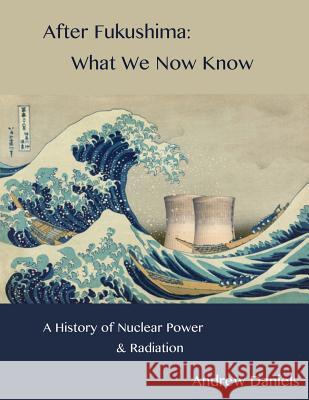After Fukushima: What We Now Know: A History of Nuclear Power and Radiation » książka
After Fukushima: What We Now Know: A History of Nuclear Power and Radiation
ISBN-13: 9781534946309 / Angielski / Miękka / 2016 / 378 str.
Whether this is your first book on nuclear power, or your twentieth, you will still find the history to be astounding and surprising. The impact of radiophobia and the history of radiation is not dull but fascinating. Extremely well-researched, no other book delves so deeply into how we react to radiation and nuclear power. There is a special fear around nuclear things, and this extends to nuclear power as well as nuclear weapons. This was a new kind fear, not similar to previous responses to new technology. It is profound, disquieting and all encompassing. By the time of Atoms for Peace, anxiety about nuclear weapons had shaped a long-lasting legacy that would taint views of nuclear power for decades. The dominant response to nuclear is avoidance. Coverage of nuclear power has been dominated by the threat of accidents or any kind of incident that occurred at nuclear power plants. This negative attention about accidents and their potential impact would interfere with the integration of nuclear power into modern society. Accidents seemed limitless in their potential damage, and the lack of public knowledge about their impact allowed imaginations to run wild. The crux of the pro-nuclear and anti-nuclear debate rests on the estimations about the significance of potential accidents. Were they capable of massive destruction and tremendous risk or was their impact compact, limited and minor? The scale of a 'worst-case scenario' became the key question of the nuclear power debate, and proved to be quite powerful in affecting its history. Chernobyl, Fukushima, and even Three Mile Island became larger-than-life incidents and each acquired their own mythology. The perceptions of what happened set the tone for attitudes about nuclear power. Despite being an essential part of the natural environment, radiation is rarely well understood. We are exposed to radiation everyday from the earth below and the sun above, yet parents believe it is more important for children to learn about volcanoes than radiation. The fear of nuclear power and radiation has become significant in itself, changing the course of history. Nuclear power has been decisively shaped by political struggles and emotional arguments that even affected its technological development. Negative feelings about nuclear power contrast with the benign feelings towards wind and solar, so considerable resources and subsidies are devoted to them, in the hope these can make a meaningful impact to reduce emissions. A strong consensus supports wind and solar in contrast to the divisive debate around nuclear power. The emotional responses are driving our attitudes to technology and energy, which does not always result in the most logical ends. The history of nuclear power is both revelatory and surprising, and it will definitely change the way you think about energy in the modern world. (This paperback format was specifically designed to be easy to read)
Zawartość książki może nie spełniać oczekiwań – reklamacje nie obejmują treści, która mogła nie być redakcyjnie ani merytorycznie opracowana.











